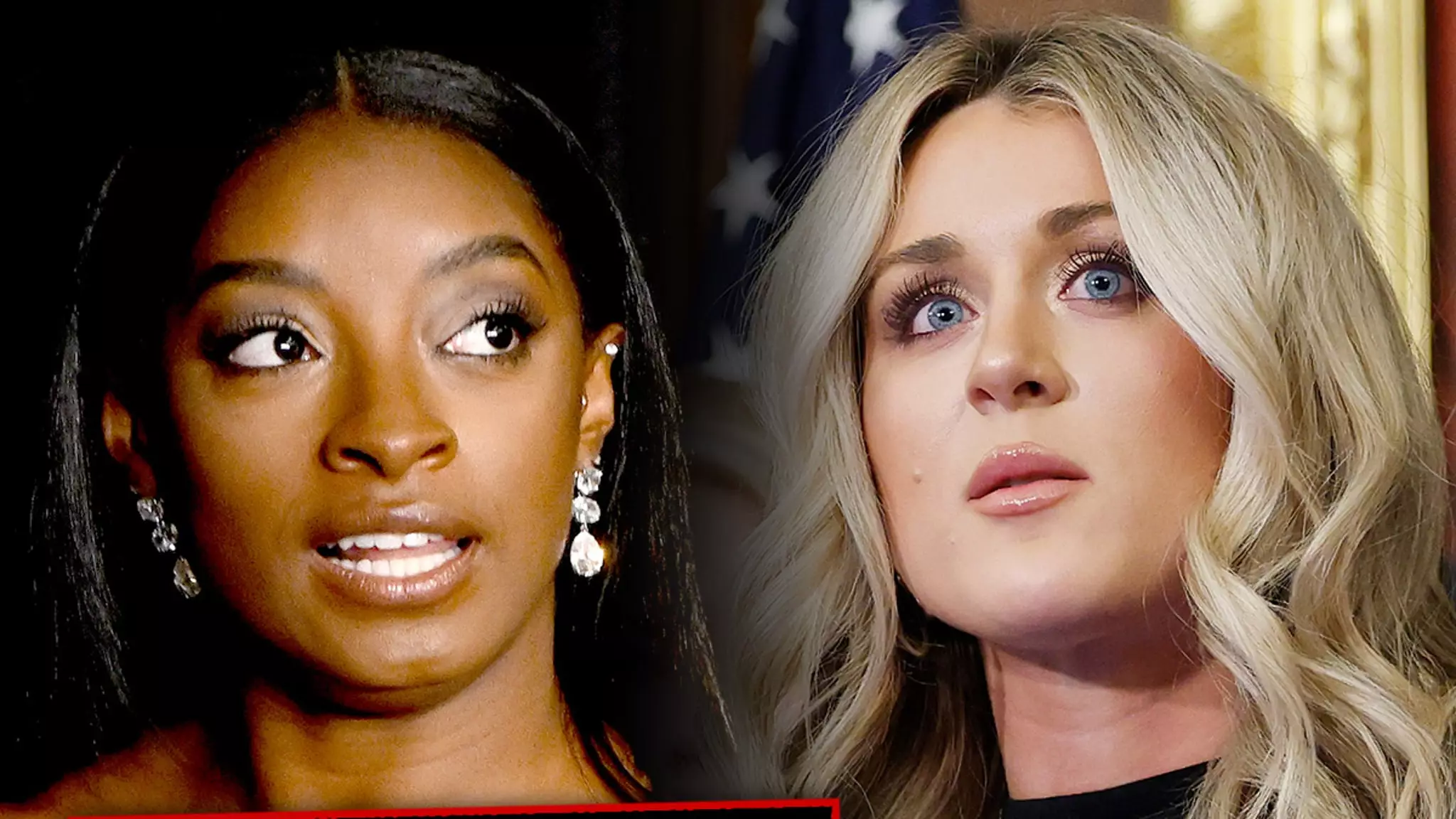In the realm of sports, debates often transcend statistics and performances, diving into sociopolitical issues that stir the hearts of the community. Recently, a high-octane discussion erupted on social media involving two polarizing figures in their respective domains: Simone Biles, a renowned Olympic gymnast, and Riley Gaines, a conservative activist. Their interaction illuminated contrasting views on the inclusion of transgender athletes in women’s sports, a topic that continues to ignite passions and polarize opinions among athletes, fans, and policymakers alike.
The Inciting Incident
The incident that sparked this heated exchange began with a social media post celebrating the triumph of the Champlin Park High School baseball team in Minnesota, which prominently featured a trans athlete as a key player. Riley Gaines, known for her outspoken conservative views on gender in sports, responded critically to the Minnesota State High School League’s decision to disable comments on the celebratory post, tagging it with a dismissive remark about the player’s gender identity. Her comment permeated social media channels, leading to a swift backlash from multiple corners of the online world, including the vocal Olympic champion Simone Biles.
Simone Biles: Advocacy and Accountability
Biles’ counterattack was sharp and unabashed, targeting not just the comments made by Gaines but the implications of her stance on transgender athletes. Biles, drawing on her platform as a celebrated sports figure, called out Riley’s perspective, labeling it as “sick,” while accusing her of being a “sore loser.” This was not merely a defense of a teammate; Biles intertwined her response with a call for inclusivity, suggesting that sports should be welcoming spaces for everyone, regardless of gender identity. The way Biles leveraged her stature to advocate for inclusivity speaks volumes; she has, after all, faced adversity herself, notably from her experiences with former USA Gymnastics team doctor Larry Nassar.
Riley Gaines: Unyielding in her Beliefs
On the other side, Riley Gaines stood firm, describing her beliefs as integral to women’s sports. She emphasized that it is not the obligation of female athletes to accommodate men, a statement reflecting her commitment to protecting what she perceives as the sanctity of women’s athletics. Her emotionally charged responses, including references to her views on Biles’ history with male perpetrators of abuse, convey her intent to remind the public of the potential implications of allowing transgender athletes to compete against biological females. These comments resonate with a significant segment of the population that feels that the integrity of women’s sports is at risk.
A Clash of Perspectives
What becomes apparent in this clash is the duality of advocacy and opposition. From Biles, we see an athlete using her influence to promote a progressive narrative of acceptance and unity. Meanwhile, Gaines represents a more traditional view of gender, fiercely defending spaces she believes should be safeguarded from male competition. This exchange exemplifies not just a personal disagreement; it is emblematic of a larger cultural conversation that resonates in locker rooms, classrooms, and homes across the nation.
The Broader Implications of Their Exchange
The implications of this feud extend beyond mere personal animosity. It mirrors a societal rift regarding gender identity, inclusion, and the future of sports. Advocates for transgender rights argue that inclusion is essential for equity and representation, while opponents claim that such inclusion threatens the competitive nature of women’s sports. The discourse raised by both women highlights the need for nuanced discussions, as the stakes in these debates often affect the lives of young athletes just discovering their passions in sports.
In this contentious landscape, the voices of figures like Biles and Gaines play pivotal roles in shaping the ongoing dialogue about gender in sports, urging us to contemplate what fairness truly means in a diverse society. Their exchange is not just a moment in time; it is part of an ongoing struggle that will likely shape the path forward for sports and society alike. As these conversations continue, both sides must confront the realities of their positions and consider the impact of their rhetoric on the evolving definitions of identity and competition.

Leave a Reply